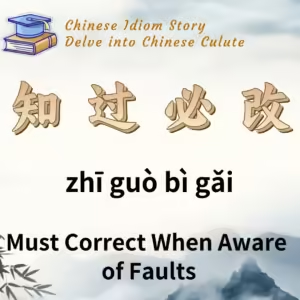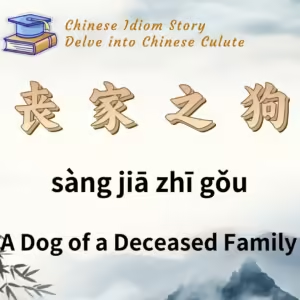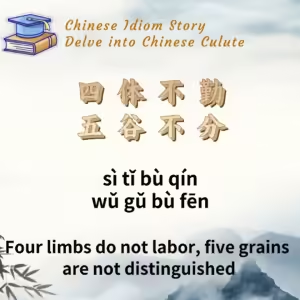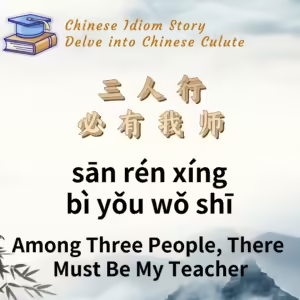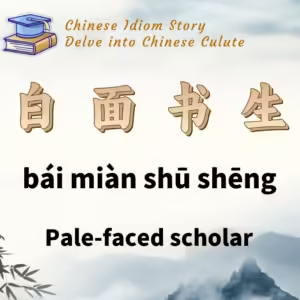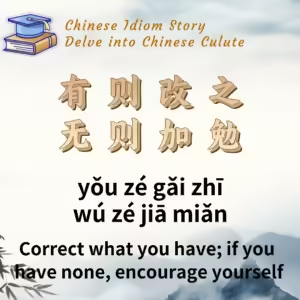
Chinese Idiom: 有则改之,无则加勉 (You Ze Gai Zhi, Wu Ze Jia Mian)
English Translation: Correct what you have; if you have none, encourage yourself.
pīn yīn: yǒu zé gǎi zhī, wú zé jiā miǎn
Idiom Meaning: This idiom advises people to correct their faults when pointed out and to encourage themselves to strive for improvement when they have none.
Historical Source: “The Analects” (《论语 · 学而篇》)
Idiom Story:
In ancient China, various philosophical schools and religions had their methods for cultivating moral character and self-discipline. One of Confucius’s most prominent disciples, Zeng Shen (also known as Zengzi), famously stated, “I reflect on myself three times a day: Am I loyal in my dealings with others? Am I trustworthy in my friendships? Have I studied and practiced what I have learned?”
Zengzi emphasized the importance of self-reflection, evaluating his actions from these three perspectives daily. The renowned Neo-Confucian scholar Zhu Xi later commented on Zengzi’s teachings, noting that Zengzi’s practice of self-examination—correcting what was wrong and encouraging himself in the absence of faults—embodies the essence of moral cultivation.
Thus, the idiom “有则改之,无则加勉” encourages individuals to engage in continuous self-assessment and improvement, promoting a mindset of accountability and growth.

